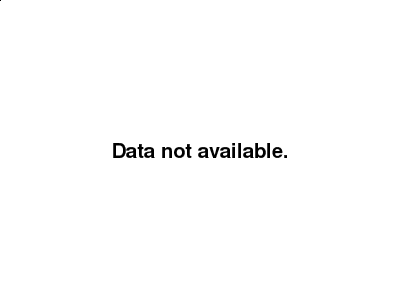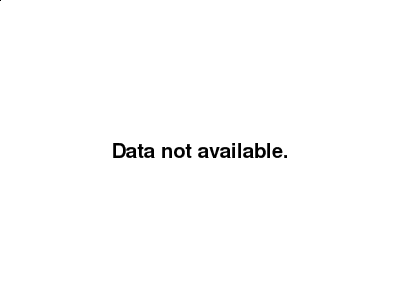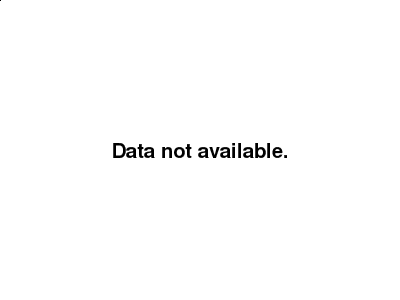Central bank to upgrade growth but downgrade inflation outlook
The EUR continues to gain versus the USD ahead of the ECB monetary policy statement. The single currency has gained 7 percent since June as geopolitical uncertainty at home and abroad, coupled with mixed data have impaired the USD. A strong currency has put even further pressure on the ECB as it has depressed inflation and complicated the tapering of quantitative easing that is anticipated for this year.
The European Central Bank (ECB) will announce its minimum bid rate on Thursday, September 7 at 7:45 am EDT. ECB President Mario Draghi will host a press conference at 8:30 am EDT. A taper announcement has been in the cards and Germany is applying pressure to do it sooner rather than later, but the announcement could still be pushed for later in the year. The political uncertainty in the United States have put the ECB on the spot as the USD with the Fed pushing a tightening monetary policy should be higher as the ECB still has massive stimulus in place. Confidence in European growth and dollar overselling has put the single currency close to 1.20.
The Energy Information Administration (EIA) will publish its weekly US crude inventories on Thursday at 11:00 am EDT. The price of oil has risen after refineries hit by Hurricane Harvey are slowly starting to get back online, but the threat of Hurricane Irma is fast approaching due to hit the US over the weekend. Supply disruptions have a big impact on prices as shale production and the Organization of the Petroleum Exporting Countries (OPEC) production cut agreement created a stalemate earlier in the year.

The EUR/USD gained 0.044 percent in the last 24 hours. The single currency is trading at 1.1923 ahead of the European Central Bank (ECB) monetary policy meeting statement on Thursday. While the central bank could announce the schedule for its QE tapering it could also chose to wait until December with the spotlight squarely on Mario Draghi’s words at the press conference. The ECB president has the tough job of balancing strong growth and low inflation while having a strong currency.
June proved to be a particular hawkish month for central bankers with the Bank of Canada (BoC) changing its tune and prepping the market for a rate hike that came in July. The ECB was upbeat in Draghi’s speech in Portugal, but has now moderated his optimism and said almost nothing about monetary policy at the Jackson Hole summit. The main takeaway from the ECB meeting on Thursday could be the upgrade on its growth forecasts.

West Texas Intermediate rose 1.038 percent on Wednesday. The price of crude is trading at $49.06 after Texan refineries are starting to come back online while at the same time Hurricane Irma threatens to hit Florida on the weekend. Harvey caused a glut of crude as the storm mostly hit refineries with as much as a quarter of US capacity had to be shutdown. Irma on the other hand could threaten crude supplies if platforms have to be taken offline for security reasons.
Weekly US crude inventories was pushed back a day due to the Labor day holiday and will be released on Thursday, September 7 at 11:00 am EDT. Last week’s data showed a big drawdown of 5.4 million barrels but with little refining capacity available crude stocks rose, specially after the US released part of its reserves to out of state refiners to keep gasoline prices from going higher.

The USD/CAD lost 1.311 on Wednesday. The pair is trading at 1.2224 after touching a 2 year low right after the Bank of Canada (BoC) surprised the market with a 25 basis points raise of its benchmark interest rate. The Canadian central bank had adopted a very hawkish view back in June and signalled a rate hike in July. A second rate hike was expected but later in the year as September is anticipated to be an important month for monetary policy meetings in particular for the Fed and the European Central Bank (ECB).
BoC Governor Stephen Poloz did not want to be left out and proactively hiked the interest rate to 1.00 percent. The eagerness of the policy maker to get ahead of the market was also evident back in 2015 when he cut rates twice to stimulate a Canadian economy about to hit by lower oil prices. Comments from the central bank’s leadership pointed to an end of that stimulus as it was no longer needed given the strength of the economy. The rate statement echoed those comments as even the strength of the loonie is not a concern as it is deemed by the central bank to be a reflection of the economy.
Market events to watch this week:
Thursday, September 7
7:45 am EUR Minimum Bid Rate
8:30 am EUR ECB Press Conference
8:30 am USD Unemployment Claims
11:00 am USD Crude Oil Inventories
Tentative CNY Trade Balance
Friday, September 8
4:30 am GBP Manufacturing Production m/m
8:30 am CAD Employment Change
*All times EDT
For a complete list of scheduled events in the forex market visit the MarketPulse Economic Calendar
Content is for general information purposes only. It is not investment advice or a solution to buy or sell securities. Opinions are the authors; not necessarily that of OANDA Business Information & Services, Inc. or any of its affiliates, subsidiaries, officers or directors. If you would like to reproduce or redistribute any of the content found on MarketPulse, an award winning forex, commodities and global indices analysis and news site service produced by OANDA Business Information & Services, Inc., please access the RSS feed or contact us at info@marketpulse.com. Visit https://www.marketpulse.com/ to find out more about the beat of the global markets. © 2023 OANDA Business Information & Services Inc.



